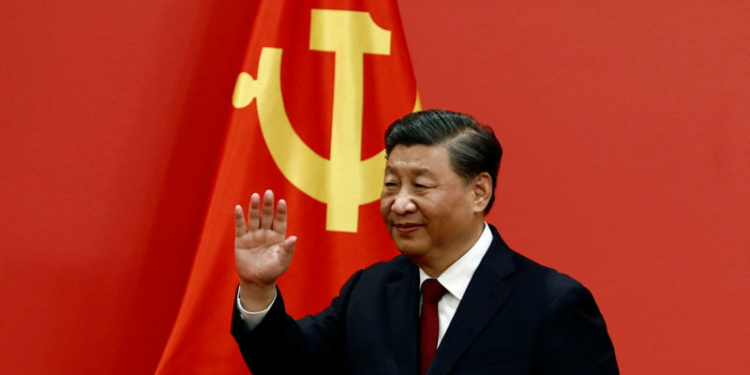On Sunday, 69-year-old Xi Jinping was re-elected as President of China, retaining command of the People’s Liberation Army.
Despite reaching retirement age, Jinping was re-elected as General Secretary of the Central Committee by the Communist Party over the weekend.
After a decade in power, Jinping has filled his cabinet with close allies to continue his administration. As the newly elected general secretary, the leader will thus serve another five-year term, returning the country to one-man rule.
Addressing the press after clinching the position, Jinping said:
I wish to thank the whole party sincerely for the trust you have placed in us.
It is understood that the rubber stamp was held on Sunday at Beijing’s Great Hall of the People.
Jinping having secured the new position is now certain to sail through to a third term as China’s president and would be due for formal declaration during the government’s annual legislative sessions in March.
Speaking further on the outcome of the communist party poll on Sunday, Jinping said the world needs China.
After more than 40 years of unflagging efforts towards reform and opening up, we have created two miracles — rapid economic development and long-term social stability, the Chinese leader said.
Six of Xi’s proteges and allies were also unveiled as members of the Politburo Standing Committee, the party’s apex of power that rules the country, on Sunday. Li Qiang, the current Shanghai Party boss who oversaw this year’s two-month Covid-19 lockdown in the financial capital, was named number two in the Standing Committee.
This means he will most likely succeed Li Keqiang, a former Xi rival who will retire next year.
Close aide Ding Xuexiang, Guangdong Party chief Li Xi, and Beijing Party chief Cai Qi were also reshuffled.
The new Politburo Standing Committee confirms decisively that Xi has consolidated power at the top of the Communist Party to an extent unseen since the Mao era.
Xi has installed allies onto all seven seats of the Communist Party’s top decision-making body, allowing him to dominate the political system for the foreseeable future,” said a senior China analyst at Eurasia Group, Neil Thomas.










Discussion about this post